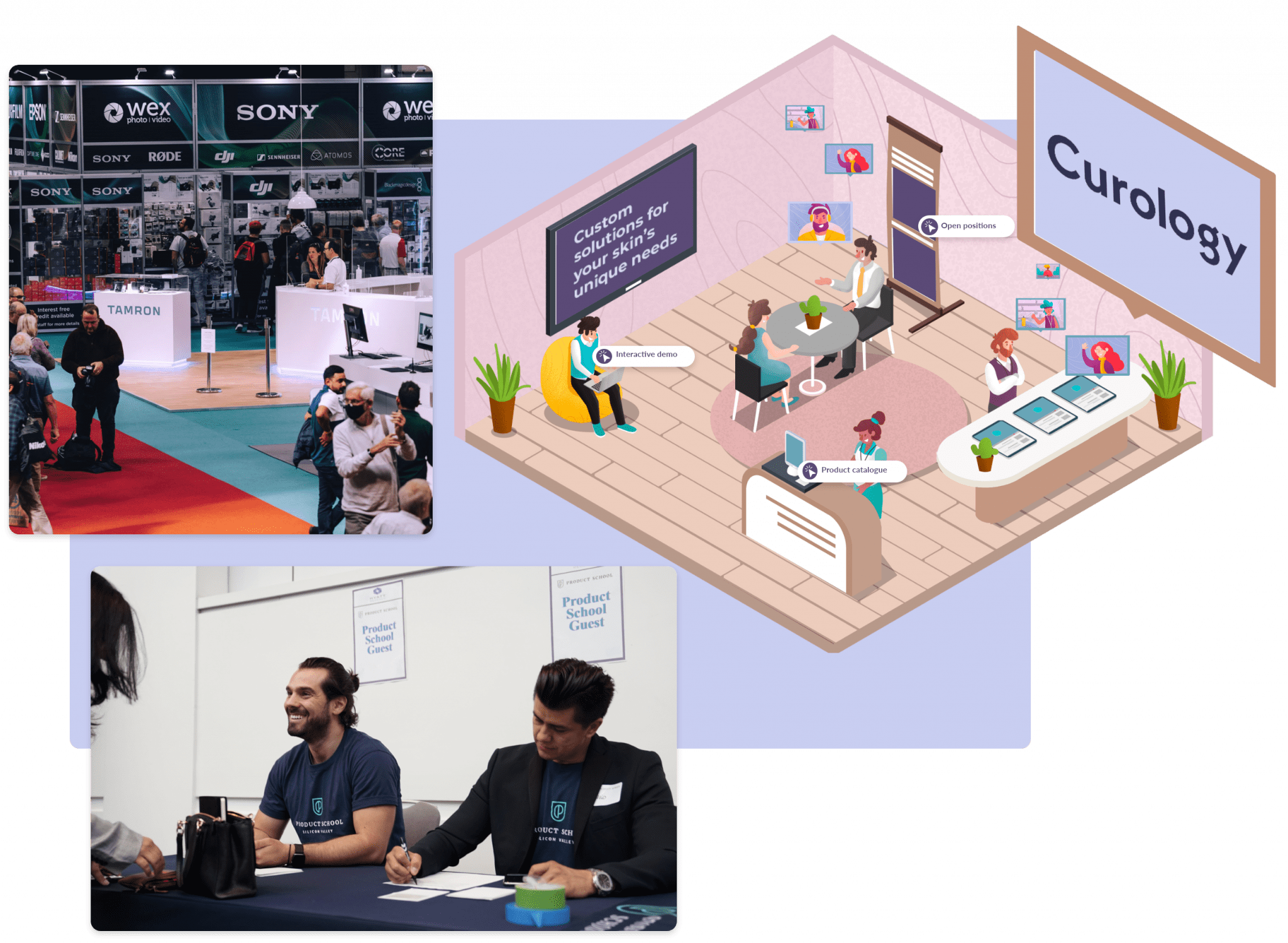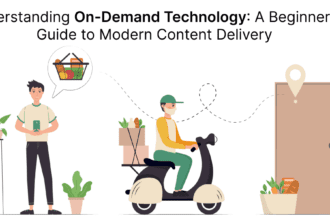
Hybrid event technology lets you share with the audience your content in a way that is even better than live events. In detail, it gives your team full control of the event schedule. Plus, it allows for executing more than one plan B when things do not go according to plan.
Hybrid events are the new standard. They are one of the most successful revenue accelerators for any company that sells products online. Of course, they engage the audience differently. So, the right tools and some stage selling techniques are necessary. These events have been the hottest trend since the pre-COVID years. And now they are just at their peak.
What Is The Best Hybrid Event Technology?
The best hybrid event technology has features that fix the known limitation of social media and VoIP-based video conferencing software. But above all, it increases the engagement of the audience. Which is the chief key indicator of how much money you will make at the end of the event.
As the COVID-19 pandemic spread around the world, companies realized that the available options were not up to the task of managing virtual events. But luckily, pioneering companies like Eventtia have been developing versatile hybrid event management software that offers all the tools that social media and previous software lacked. So, hybrid events boomed. The challenge, for most business owners, became finding the best solution for handling digital attendee flows.
Hybrid Events VS Live Events
Getting the most suitable hybrid event technology is not the only obstacle for companies that used to make live events. In fact, the learning curve may take up to two months before allowing business growth.
Most planners have to convert the ins and outs of on-site events to adapt them to a new format. Then again, the platform they use may further hinder their progress until they master it. This is why companies like the previously mentioned Eventtia gained traction—by offering intuitive solutions for fast web integration.
Unlike live events, hybrid events require you to:
- Create digital content for the virtual audience.
- Handle two audiences at once. To specify, the virtual audience looking at you behind the camera and the physical one that sits in front of you.
- Budget more time for Q&A because it may take some time selecting the questions coming from the online crowd.
- Install a monitor to read the online comment in real-time.
- Choose a method for the virtual audience to communicate with the speaker.
- Manage bandwidth issues during live streams.
Managing Virtual And In-Person Formats For More Profits
In comparison with hybrid meetings, hybrid events go a step further. Having a large audience at your workshop or seminar is exhausting. But hosting a virtual event and increasing the number of attendees is even harder. This is why the host must rely on hybrid event technology to simplify every activity or lecture.
Planners may have to double down on their marketing efforts to promote online registration. But virtual event software handles the rest, from payment to attendee tracking. Also, advanced software can add chat and live polls to engage the audience. Plus profiles and agendas full of information on the next segment and speaker.
Face-to-face and online participation may differ. But both types always complete each other. For clarity, having a live audience improves the speaker’s authority and can provide social proof. In the end, a hybrid event generates more revenue than standard live events. It also promotes instant social sharing. So, it offers a win-win scenario even when the event turns out to be a total flop.
Turning Lectures Into Million $ Conferences
Many digital companies are making millions hosting virtual events. Thanks to hybrid event technology, they reach a vast coalescence of people and cultures. But above all, they can use software and analytics to find their target audience for even more profitable events.
Contrary to popular belief, it does not matter if you host a workshop or a bootcamp—most hosts believe that offering a simple seminar may sound dull. What matter is a series of adjustments that help each speaker move forward, for example:
- Adjusting your sales to create the same stage rush online. To explain, stage rush refers to people rushing to buy what you sell as you are still pitching on the stage.
- Having several panelists both online and in-person.
- Making sure the speakers look at the camera once in a while.
During a live event, a lot of sales come at the moment you open the cart, so to speak. Then, they trickle away, and a few more come in as you close the cart. Online audiences behave differently. Their buying behavior is quite the opposite, as most viewers tend to buy near the end before you close the cart. This simple explanation contains the reason why hybrid events generate millions of dollars.
Marketing Your Next Tradeshow Or Conference To Make Money
Hybrid event marketing relies on mobile-friendly sites and platforms that allow everyone to participate and view the event. But without hybrid event technology, hosts have to give up many tools. They need to plan the event and target a specific online audience instead of accepting everyone who wants to join.
Your online audience is core to the heart of the event. So, the speaker must provide them with high-value content, and the marketing should reflect that.
Hybrid event technology opens up more possibilities. For example, it allows for making accessible extra content to your audience during the show, thus increasing the commercial success of your event. The marketing can then focus more on all the benefits that your event management software has to offer. Including the rolling-programme that keeps people engaged and how they will interact during the panel debate.
Using videos from the last event is always a great tactic. But ideally, good speakers and promises are critical for the success of the marketing campaign. So, crafting a strong core message and using paid ads or influencers usually work best.
The Bottom Line
What we learned during the current pandemic was people were ready for the digital transition. But making the transition to virtual and engaging virtual audiences is hard. Sadly, we cannot have physical events like before. So, using hybrid event technology is the most sensible thing to do to keep making money. Many industries already head in the same direction. And we can be sure that it is going to become a more competitive game as time passes by. First come, first served.







